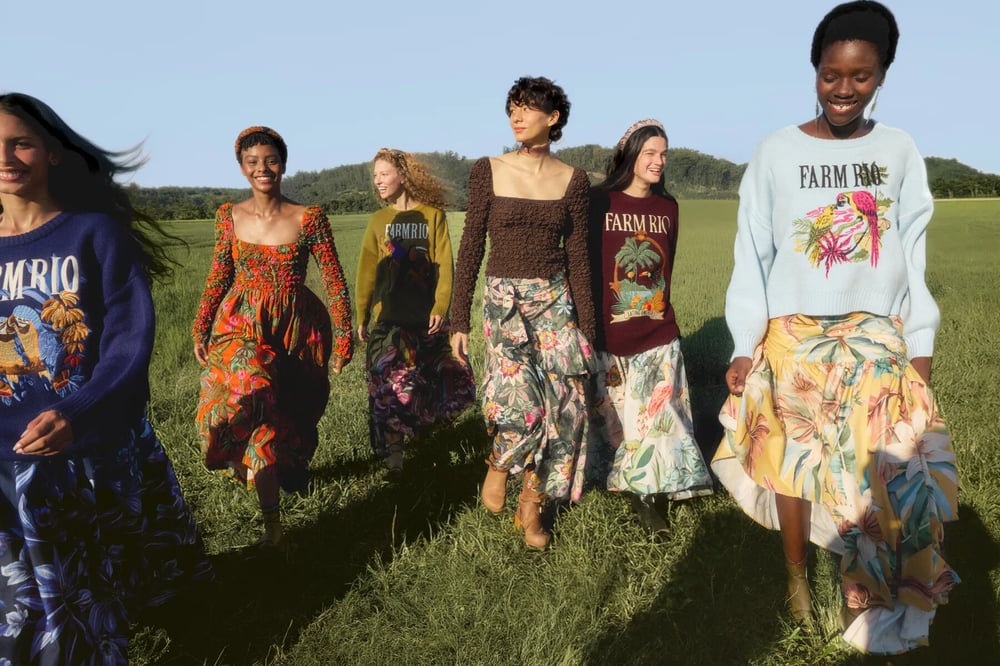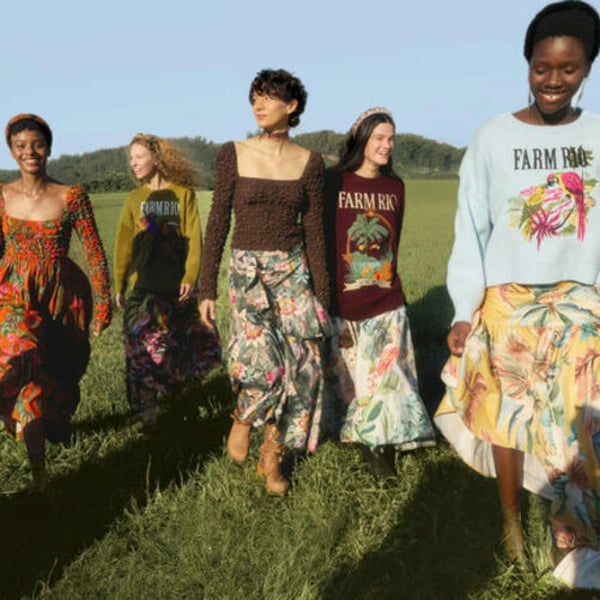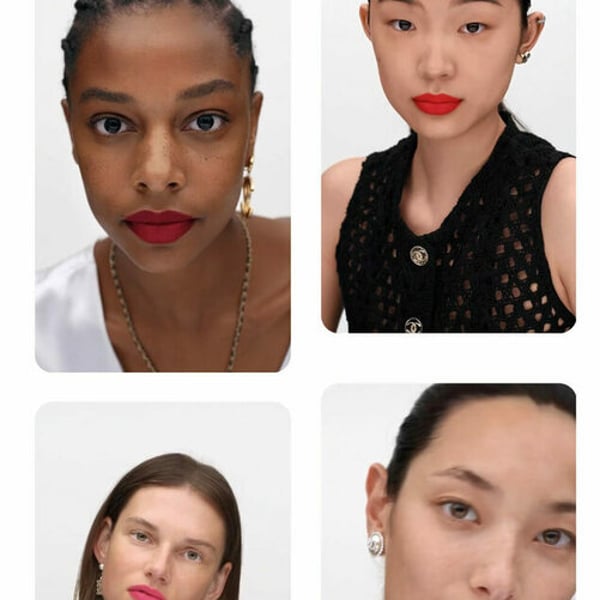By
Bloomberg
Published
June 4, 2025
A Brazilian fashion company known for colorful prints sported by celebrities, including Justin Bieber and Beyoncé, is selectively raising prices to cushion the impact of tariffs while scaling back exports to the US.

Azzas 2154 SA, owner of the Farm Rio brand, has already increased some prices in the US and is considering shifting parts of its production to Europe from China, chief executive officer Alexandre Birman said during an interview at Bloomberg’s headquarters in New York.
“We don’t know where tariffs will stop, but we’ve temporarily slowed US-bound imports,” Birman said.
Azzas, one of Brazil’s largest apparel exporters, is navigating turbulence in both the US and its home market, where high interest rates have fueled concerns about demand. Globally, sales for mid-tier fashion-focused brands have largely held up, but companies have warned that the outlook for the second half is unclear.
Brazil’s apparel sales have remained strong so far this year, but higher tariffs could hinder Azzas’ international expansion. Still, Birman sees opportunity in Brazilian footwear manufacturing as companies seek alternative sourcing countries to avoid US duties.
“If tariffs on Chinese goods rise above 50%, we become competitive,” he said. “In that case, we’d need to accelerate investments to expand local output, as China’s production quality has improved significantly in recent years.”
The US hiked tariffs to as high as 145% before scaling back to 30% for 90 days as the countries worked toward an agreement. US President Donald Trump has also raised tariffs for countries across the board and threatened the EU with a levy of 50% if no deal is reached.
US states and small businesses are challenging the levies at the US Court of International Trade, which had previously ruled against the tariffs. Although a federal appeals court has temporarily allowed them to remain in effect, the future of US trade policy will depend on a mix of court decisions and ongoing negotiations with foreign governments.
In subsequent comments to Bloomberg, Birman said that Trump’s policies are causing uncertainty.
If duties continue to rise, Azzas may move apparel production to Turkey or Portugal — a shift that would also support the European rollout of its Farm Rio brand. The company currently has a limited number of stores in the region. It’s also looking to expand in the Middle East, Mexico and South America.
The Farm Rio brand has six stores in the US and more than 100 in Brazil.
Birman said that Azzas, formed from the 2024 merger of Arezzo and Grupo Soma, has seen only a “small impact” from tariffs so far. The Belo Horizonte, Brazil-based company is focused on accelerating synergies and improving its cash flow as it merges operations. He added that the group is streamlining operations with an eye on return on invested capital and hasn’t ruled out deals related to its brands.
The company also owns high-income brands including Animale, Maria Filó, Cris Barros and Fábula, among others. Birman also has a brand under his own name that sells shoes costing from $400 to $1,000. Actress Emily Blunt wore the shoes during the 2023 Oscars.
Quarterly results
Birman said the integration is starting to deliver results, with gains expected as the company streamlines logistics and shipping operations and combines areas such as e-commerce and customer service. Revenue rose sharply in the first quarter compared to a year earlier.
Investors are watching closely for signs of progress. Ruben Couto, an analyst at Banco Santander, said in a recent note to clients that the company’s negative operational cash flow and high capital expenditures contributed to higher debt last quarter.
To counter this and instill financial discipline, employee bonuses are now tied to Azzas’ free cash flow, Birman said. Management also plans to lower capital expenditures by 120 million reais ($21 million) next year by reducing spending on technology and opening new stores via franchisees.
Birman downplayed a report from Valor Econômico, a Brazilian newspaper, that there’s tension with Grupo Soma founder Roberto Jatahy.
“There are points of divergence that generate interesting debates,” Birman said of his relationship with Jatahy. He added that “everything is governed by a valid agreement, including a 10-year lock-up plan, to uphold its terms.”
Last year, the company’s major shareholders agreed to a lock-up plan that restricts the sale of their stakes except in specific cases.
Birman and Jatahy are major shareholders in the combined entity, and Soma generates about 30% of the revenue. Azzas’ Brazil-listed stock has advanced more than 50% so far this year, with much of the jump following the company’s first-quarter earnings release last month.
Birman added he has a “deep” relationship with Farm Rio’s founders, Katia Barros and Marcello Bastos.
“We have a fashion connection; there’s a constructive relationship with strategy to improve the business,” he said.




